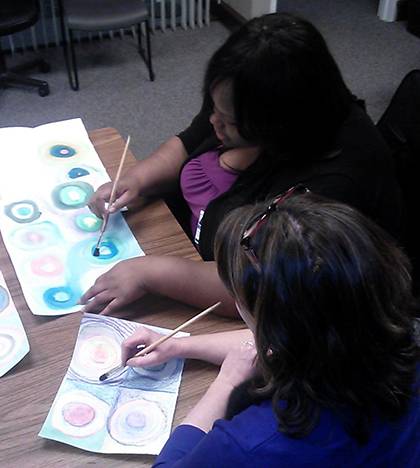Find Information and Support for Mood Disorders
Duke offers free group for those dealing with illness or helping others

For one Duke employee, dealing with depression is something she's put up with for 30 years, suffering through lack of appetite, inability to sleep, concentration problems and more. She cycled through counselors and therapists until medication helped her find more control of her life.
Along with treating her depression, she's also found solace at Duke, where she's met with other employees and community members dealing with mood disorders of their own. Duke's Mood Disorders Support and Education Group, a monthly meeting organized by Duke Psychiatry and Behavioral Sciences, is a free and open discussion for those impacted by mood disorders.
It's not meant to act as a therapy group, but instead offers a place to ask questions, receive support and hear from experts who offer tips for dealing with or supporting people with mood disorders. Meetings are 6 to 7 p.m. every fourth Thursday of each month in the third floor conference room in Erwin Square Plaza.
"We started the group simply because we want people to know they're not on their own," said Cynthia Jones, a faculty in practice with Psychiatry and Behavioral Sciences. "It's an opportunity to share things that are on your mind or just listen and not say anything at all. It's an open discussion."
Jones noted that participants in the group deal with a variety of mood disorders, including bipolar disorder, depression and anxiety. The group is open to anyone who wants to learn about or be supported in dealing with the effects of mood disorders.
For Durham resident Kim Jackson, joining Duke's mood disorders group has changed her life. She said she began attending sessions four years ago to learn how to better cope with an eating disorder and borderline personality disorder.
Jackson said the group became invaluable for her because of a guest speaker who worked on art projects with participants.
"I felt like I would have a million things running through my head, but something as simple as making a collage or painting a tree slowed things down and taught me to focus on one thing," Jackson said. "From there, I started picking up other activities to help like knitting or crocheting."
Throughout the year, the group will offer a variety of discussions on health topics and talks with guest speakers. Upcoming programs include how to manage sleep disorders, a caretaking resource guide and financial planning for people with mood disorders.
"Mental illness is a spectrum and no matter what issue a person deals with, there will be ups and downs," Jones said. "But it's different when you get to interact with people who deal with illness and want to get better."
A full schedule of meetings and events for the group can be found online at the Mood Disorders Support and Education Group website.